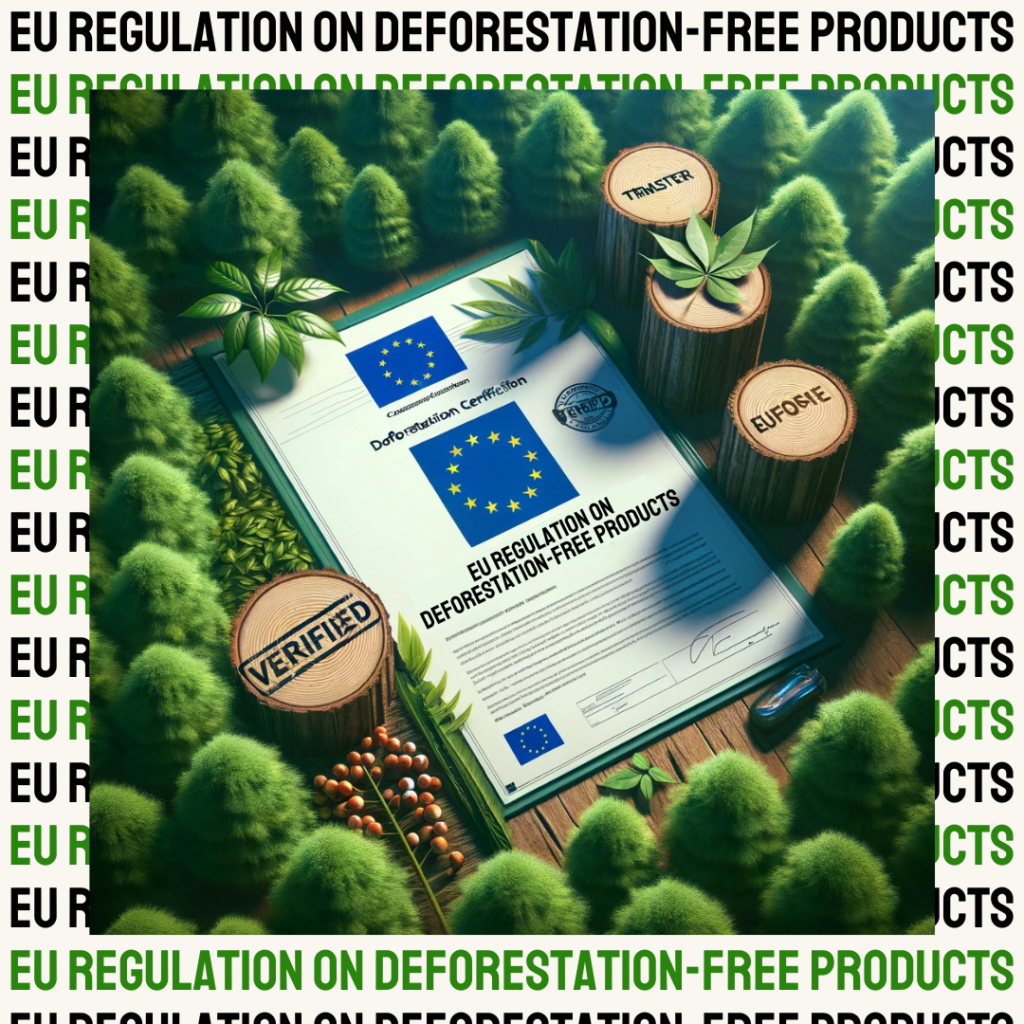The enforcement of new EU regulations against deforestation may have a significant impact on Vietnam’s agricultural exports to Europe, as Vietnamese goods will have to comply with more stringent conditions. Nonetheless, there are positive aspects to consider when examining the potential consequences.
This article will provide an overview of the new EU regulations on deforestation-free products, what risks there will be for companies, and how they can successfully adapt and navigate this change.

Under the new regulations, companies exporting goods to the EU are required to provide a due diligence statement and verifiable assurances that their products do not come from deforested land after December 31, 2020. Plus, companies must also verify compliance with relevant legislation in the country where the goods are produced.
Even if a company’s manufacturing process meets international quality standards, it will still be evaluated based on the origin of its raw materials. This necessitates investments in implementing advanced technological measures.
In order to ensure compliance with this new regulation, checks will be carried out by the competent administrative authorities of the Member States of the European Union. Failure to comply with this regulation will have the following immediate consequences for traders/operators:
On the other hand, there may also be sanctions:
In order for products to be exported to the European market, they must meet the following three conditions:
The “zero deforestation” criterion means that the products in question must have been produced on land that has not been subject to deforestation activities after 31 December 2020, or have been fed with or manufactured from such products. Then, the laws of the country of production are also applicable.
The obligation to declare due diligence consists of three stages described in articles 9, 10 and 11 of the regulation.
When conducting Due Diligence (DD), it is essential for operators or traders to gather information, documents, and data confirming that the commodities or products in question do not contribute to deforestation and that the producers in third countries comply with their local regulations. This process involves several key steps:
After gathering this information, a thorough risk assessment must be performed to determine if the commodities or products are indeed free from deforestation implications. Operators are prohibited from marketing commodities or products that pose a substantial risk of deforestation. Additionally, operators and traders must maintain detailed records of these evaluations.
If a company is unable to confirm that its products carry no risk or only a negligible risk of non-compliance, it must implement risk mitigation measures. These measures could involve requesting further information, data, or documentation, conducting independent surveys or audits, or other relevant actions. Additionally, the company should provide its suppliers with assistance in meeting compliance standards. It is mandatory for companies to establish robust systems capable of effectively managing these risks, including subjecting these systems to independent audits. However, Small and Medium-sized Enterprises (SMEs) are exempt from this audit requirement.
In order to prepare for this EU regulation, there are a number of steps which firms can take to prepare for the new EU regulations to limit deforestation. First of all, firms should ensure they have a clear understanding of the regulations, regulated product lists, and the implementation timelines of the legislation in order to respond proactively.
Then, businesses need to have a tracking system in place to ensure that agricultural products produced in their supply chains are not linked to deforestation or ecosystem degradation.
Key dates:
The implementation dates of the obligations for businesses are as follows:
– 18 months after the text comes into force for operators and retailers, i.e. 30 December 2024 ;
– 24 months after the text comes into force for VSES/SMES businesses, i.e. 30 June 2025.
*Targeted goods by the New EU Regulation combating deforestation: soy, beef, palm oil, wood, cocoa, coffee, rubber, and charcoal, as well as derivatives such as leather, chocolate, and furniture (this list can be updated over the time).